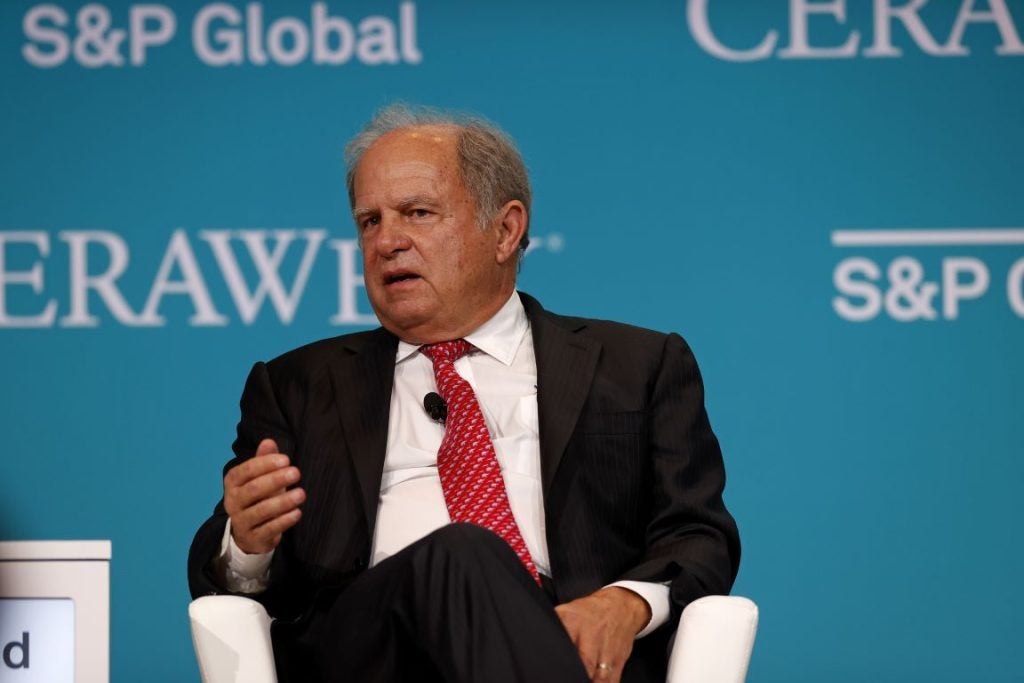Former Pioneer Natural Resources CEO Scott Sheffield, accused of colluding with OPEC to restrict oil production, says the US Federal Trade Commission (FTC) has "unjustly smeared" as he seeks to overturn a ban on him sitting on ExxonMobil’s board.
The FTC alleged that Sheffield colluded with OPEC and representatives of countries allied to the body via public statements and private communications to reduce oil and gas outputs.
This resulted in higher pump prices, which reportedly boosted his company's profits.
On 2 May, the FTC said in the complaint that Sheffield had “exchanged hundreds of text messages with OPEC representatives and officials discussing crude oil market dynamics, pricing and output”.
In response, Sheffield stated that the FTC did not allow him to explain himself or ask questions about the communications.
According to a comment filed on behalf of Sheffield to the FTC on 28 May, there were four occasions when a government official asked Sheffield to provide information to aid the investigation.
Sheffield's counsel said these requests were for public information such as a copy of a news article or a widely attended conference presentation.
The FTC also cited Sheffield’s comments about the production cuts mandated by the Railroad Commission of Texas.
He responded: "If Texas leads the way, maybe we can get OPEC to cut production. Maybe Saudi and Russia will follow. That was our plan. I was using the tactics of OPEC+ to get a bigger OPEC+ done.”
His counsel said: “Sheffield is one of two or three people most responsible for the near tripling of US [oil] production since 2008 and making the US energy independent.”
The counsel added under his leadership the value of Pioneer shares “increased by more than 625%. [Scott] Sheffield would be a superb Board member”.
Sheffield also wrote to the FTC claiming that he initiated text messages with OPEC officials and Texas producers as part of an “official government proceeding."
His counsel argued that at no time “did government officials and Sheffield exchange competitively sensitive information”.
Under the proposed consent order, Exxon cannot nominate or appoint Sheffield to its board for five years.
FTC’s consent order
As part of its examination of the antitrust laws surrounding ExxonMobil’s $64.5bn acquisition of Pioneer, it approved a consent order preventing Sheffield from earning a seat on Exxon’s board of directors.
The order also stopped Sheffield from serving in an advisory capacity at Exxon once it acquired Pioneer, an independent oil and gas exploration and production company that operates across the US.
Kyle Mach, deputy director of the FTC’s Bureau of Competition, said: “Sheffield’s past conduct makes it crystal clear that he should be nowhere near Exxon’s boardroom. American consumers shouldn’t pay unfair prices at the pump simply to pad a corporate executive’s pocketbook.
“The FTC will remain vigilant in its enforcement efforts to protect competition in these vital markets.”
According to the FTC, Sheffield’s appointment to Exxon’s board would also be “anti-competitive”. He currently serves on the board of Williams Companies, which operates a host of natural gas pipelines, gathering, processing, and treating assets and other businesses that directly overlap with Exxon’s operations.
Sheffield’s appointment would create a board interlock among competitors, potentially violating Section 5 of the FTC Act.
Sheffield’s counsel also argued that Section 8 of the Clayton Act, which mandates ExxonMobil to agree to certain attestation and reporting obligations for ten years, is an “unprecedented and meritless theory”. This would substantially lessen global crude oil market competition despite his statements being “constitutionally protected”, the response said.
Scott Sheffield seeks to have the proposed consent order vacated and the complaint withdrawn. The discussions and arguments are ongoing.













